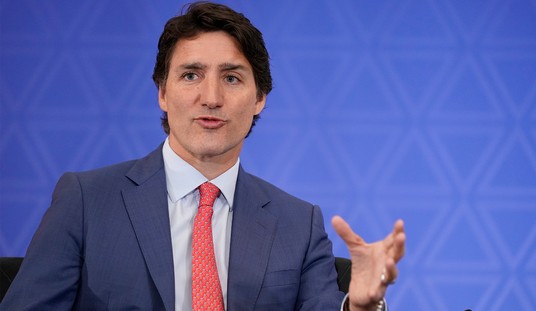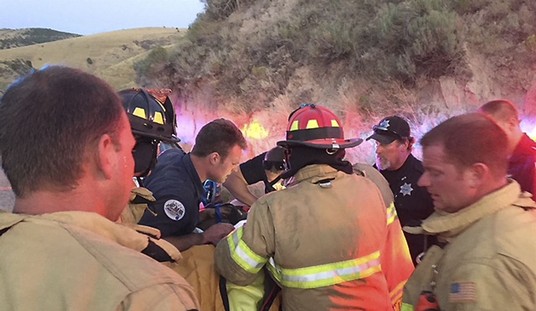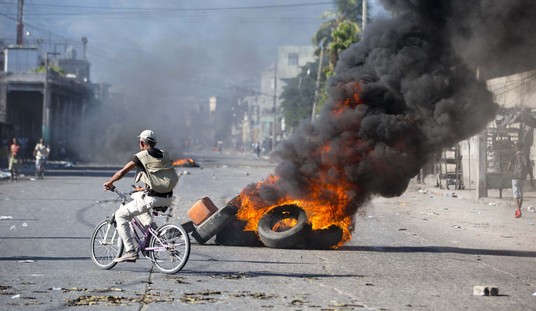President Barack Obama is finding himself with few friends in Washington…
The disenchantment with Obama is in part a reflection of inevitable fatigue with a president entering his final years in office. But some Democrats say it is also a consequence of the president’s insular approach to governing and his preference for relying on a small cadre of White House advisers, leaving him with few loyal allies on Capitol Hill or elsewhere…
While White House officials dispute the notion of an isolated or weakened president, there’s little doubt that Obama’s standing with the American people and his own party has fallen since his resounding re-election in 2012. Battered by a flurry of crises at home and abroad, the president’s approval rating has hovered near record lows for much of the year. His party is at risk of losing the Senate in the November midterms and not one Democrat locked in a close race has chosen to make a campaign appearance alongside the president thus far…
But the criticism from Panetta and others has suggested that Obama may not only lack a reserve of support outside the administration, but that he may also struggle to command loyalty from those who have advised him most closely.
In another sign of President Obama’s deteriorating public support, more than half of Americans now say that he is failing as president, the latest IBD/TIPP poll finds.
The poll, which ended Friday, found that 53% characterize Obama’s presidency as a failure vs. 41% who rate it a success. Just 6% say that they aren’t sure…
Broken down by age, only those age 18-24 say that Obama has been a success (77% of this group believes that). His worst showing is among those 25-44, of whom 59% describe his presidency as failing…
The monthly national IBD/TIPP poll found that only 43% say they would vote for Obama if the 2012 election were held today; 49% say they’d vote for Mitt Romney. Only 46% of those from states that Obama carried two years ago say they’d do so again, given another chance.
For much of the Obama presidency, voters have tended to draw a distinction between the man and the problems faced by the nation – many of which, like high deficits, wars and unemployment, were blamed either on the George W Bush era or global factors beyond the president’s control.
It was that buffer that explained how Mr Obama broke all historical precedent and won re-election with unemployment running at nearly 8pc. While some of his policies were unpopular, a strong majority still found the president to be an “honest and trustworthy” leader.
Now those ratings too are under water, and Mr Obama is identified as part of the problem, with only 27 per cent of Americans believing that “things in the United States are heading in the right direction” according to a CBS/New York Times poll this week.
For Democrats hoping keep control of the Senate in November that’s a horrible number. The Obama love affair looks well and truly over.
Panetta confirms what has been whispered about for years—that Obama shows “a frustrating reticence to engage his opponents and rally support for his cause.” The president often “relies on the logic of a law professor rather than the passion of a leader,” Panetta writes. In reflecting on the president’s habit of bitching privately about obstructionist Republicans without cleverly confronting them, he notes that Obama “avoids the battle, complains, and misses opportunities.”…
Neither Panetta nor anyone else can blow up Obama’s legacy. The powers of office are such that presidents can often use events to redefine, even reinvent, themselves. And no honest historical assessment of Obama’s accomplishments, especially in his first two years, will fairly conclude that his presidency failed.
But the fallout from the Panetta book will be significant over time. It sets in concrete a critique of the president’s operating style that has been spreading for years. Only a series of unexpected achievements in 2015 and 2016 will dislodge Panetta’s depiction of Obama as an aloof professor-in-chief who didn’t fight hard enough for his ideas and heedlessly placed his faith in logic, always the first casualty in Washington.
On Capitol Hill, members of both parties are more and more mystified at Obama’s apparent disengagement from parts of his job. Months before he dropped the ball on ISIS, he failed to keep himself properly apprised of the problems with Obamacare’s website. Jarrett appears to exercise such extraordinary influence that in some quarters on Capitol Hill she is known as “Rasputin,” a reference to the mystical monk who held sway over Russia’s Czar Nicholas as he increasingly lost touch with reality during World War I.
No one suggests that Jarrett is solely responsible for the administration’s slow response to the crises, contradictory communication, and labored political calculation that have become its hallmarks. But many do think that she has failed to encourage the president to bring in new people with fresh ideas.
Yes, Barack Obama was going to be the modern embodiment of Abraham Lincoln himself, fulfilling the long-delayed promise of America’s racial reconciliation, in part by using his unusual-for-politics parentage as a springboard for uniting, not dividing. “There’s not a liberal America and a conservative America; there is the United States of America,” Obama said, in the speech’s most celebrated passage. “There is not a black America and white America and Latino America and Asian America; there’s the United States of America.”…
The ensuing presidency, and the last six years of American political life, have been so desultory that it’s almost hard to remember how ubiquitous the now-laughable Lincoln comparison once was. Take this Washington Post analysis after the 2008 election: “He was a boy with a distant father, raised in a family of modest means. He had a curious intellect, devouring history and memorizing passages from Shakespeare. He became a lawyer and settled in Illinois, where he was elected to the state legislature. With relatively little political experience, he decided to run for president. Few believed he stood a chance of winning a primary campaign against the party’s heir apparent, a senator from New York. But the gangly, bookish Illinoisan galvanized millions across a country in crisis with his soaring rhetoric, speaking in big strokes about transcending partisan politics and creating America as it ought to be. He rose from obscurity to clinch his party’s nomination and the presidency. Sound familiar?”…
Did those who invested heavily in the Lincoln metaphor examine their own gullibility in the face of directly contrary evidence? Hardly. Goodwin, one of the few to be challenged on it (due to the theatrical release of Lincoln), suggested in a November 2012 Washington Post interview that Obama fell short because “maybe he waited too long to give his health-care speech before the joint session of Congress.” Uh-huh. In the land of presidential projection, every unfulfilled dream is only one knockout speech away.
A poll released over the weekend shows that 32 percent of voters are using their midterm election votes to send a message of opposition to the president. That is “the highest ‘no vote’ percentage in the last 16 years” as measured by Gallup. I have never seen a White House or a political party as hollowed out as the Democrats appear to be now. The Obama presidency isn’t officially over yet, but it is receding further into our rearview mirror. And it is becoming clear that many in the Democratic Party think the Obama presidency is effectively over, and they are acting accordingly…
I wrote back in July that President Obama was already acting like a former president, which prompted some others to claim that President Obama’s last two years might actually be the most important two years of his presidency. Obviously, he isn’t literally a former president, but I still think the famously bored Barack Obama has settled into a caretaker role, without an affirmative agenda or fresh energy to drive new plans. After November, I think we can expect the occasional staff-written executive order and that the president will remain on call for decisions that have to be made. Everyone in the administration will continue to enjoy their perks of office, hoping nothing really bad happens. The same is true for the Democratic leadership if they maintain control of the Senate. They are all about the privileges of the majority. It doesn’t appear that anyone in the Democratic leadership thinks there is any urgency to get anything done during the next two years. And that is really too bad, given all the problems we have and the threats we face.
Yet reasonable people are also justified in wondering whether the president is really present in his job. Forget the optics. The relevant question is, where is his mind? Is he engaged? Does he care?
It is unfair to ascribe nefarious motives to the president, as many on the far right have done. Still, effective leadership requires that one not only speak the truth but speak it with conviction and authentic passions natural to events. Obama’s remarkable dispassion, punctuated occasionally by a brilliant smile that seems attached to a timer, has the effect of no effect whatsoever…
The president’s demeanor conveys a lack of involvement that is disconcerting and potentially dangerous. For whatever reasons, he is resistant to decision-making (destroy, not manage, that JV team the Islamic State), slow on the uptake when conditions are dire (Ebola), dismissive of his own lack of follow-through (the “red line” for Bashar al-Assad), and quick to blame others for his failings (he knew nothing about fill-in-the-blank until he read it in the papers).
While he brandishes incompetence, America’s friends and foes stroke their chins. Is this guy for real?
As you can see, there’s a theme running through each of the areas of domestic policy I’ve covered. In each case, Obama delivered less than his supporters wanted, less than the country arguably deserved, but more than his current detractors acknowledge. The extent of his partial success ranges from the pretty good to the not-so-bad to the ugly. Health reform looks pretty good, especially in historical perspective – remember, even Social Security, in its original FDR version, only covered around half the workforce. Financial reform is, I’d argue, not so bad – it’s not the second coming of Glass-Steagall, but there’s a lot more protection against runaway finance than anyone except angry Wall Streeters seems to realize. Economic policy wasn’t enough to avoid a very ugly period of high unemployment, but Obama did at least mitigate the worst.
And as far as climate policy goes, there’s reason for hope, but we’ll have to see.
Am I damning with faint praise? Not at all. This is what a successful presidency looks like. No president gets to do everything his supporters expected him to. FDR left behind a reformed nation, but one in which the wealthy retained a lot of power and privilege. On the other side, for all his anti-government rhetoric, Reagan left the core institutions of the New Deal and the Great Society in place. I don’t care about the fact that Obama hasn’t lived up to the golden dreams of 2008, and I care even less about his approval rating. I do care that he has, when all is said and done, achieved a lot. That is, as Joe Biden didn’t quite say, a big deal.








Join the conversation as a VIP Member